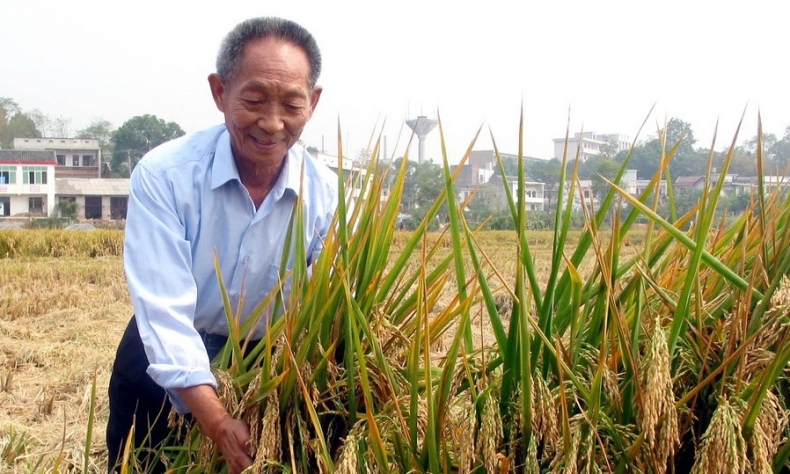Small Grains Change Lives – The Legacy of Yuan Longping

We like to admire those scientific masterminds who have created inventions that have revolutionized our world, but always remember, human development begins first with the most basic and simple things, such as cultivating rice. Yuan’s contribution matters, immensely.
Rice is one of the most commonly eaten staple foods around the world. It’s something millions of people take for granted. Buying it and cooking it is a matter of routine. Yet for many, its presence has been a matter of life and death, a necessity of basic sustenance and nutrition. It is a predominant food due to its simplicity to grow, low cost and convenience. A poor community in the developing world may find it difficult to import foreign fruits or raise cattle for meat, but it can almost certainly utilize the land it has in order to grow plenty of rice.
This was the great achievement of Yuan Longping, who passed away several days ago. A pioneering Chinese scientist and innovator, Yuan successfully cultivated what is known as “hybrid rice” – a breed of rice plant created by crossbreeding two different varieties, creating a crop which can produce up to a 30% higher yield. His creation is attributed with lifting millions around the world out of famine, a feat which has an unprecedented impact within developing countries and within China. His achievement is a symbol of how hard work, dedication and the bid to conquer poverty built modern China.
Yuan Longping was born in the year 1930, an era when China was very different. It was mostly an agrarian nation, without modern industry and consumption at large, and was dominated overwhelmingly by a peasantry whom as set out above, depended upon the rice which they grew. The first few decades of his life were met with major political, economic, social upheavals, and a rapidly growing population that made the food supply unstable.
This experience would leave its mark upon Yuan Longping, who pursued a career in agricultural science and by the end of the 1960s, worked on his hypothesis for a theory of hybrid rice. His contribution would see the rice supply in China boom, increasing from 56.9 million tonnes in 1950 to 194.7 million tonnes by 2017, creating record yields which were far greater in kilograms per hectare and in output than those without using the method. By 1991, 20% of the world’s rice output came from hybrid rice, despite only being planted in 10% of fields.
His legacy arguably reflects China’s development trajectory, but also demonstrates the importance of how food supply is essential in cultivating a prosperous country. The creation of hybrid rice came at a time when China itself was commencing a period of economic transformation. It allowed rice to become a commodity not just at home but around the world too, helping many countries overcome famine and also to begin the transition from survivalist agrarian communities toward modern development.
What this also shows is how China’s own success has been built on the bedrock of people like Yuan Longping. China’s economy boomed and developed because of people such as him, who facing struggle and seeking a way forward for the people, sought to be smart, creative and envision solutions which could improve people’s lives, working hard to achieve game changing results. In this case, while we may think of rice as only a few grains, something we consume all the time and take for granted, we have to remember, it’s more than that. We have to remember a time when people didn’t have that luxury and that we should be thankful for steadfast scientific thinkers like Yuan.
We like to admire those scientific masterminds who have created inventions that have revolutionized our world, but always remember, human development begins first with the most basic and simple things, such as cultivating rice. Yuan’s contribution matters, immensely.
 Facebook
Facebook
 Twitter
Twitter
 Linkedin
Linkedin
 Google +
Google +







